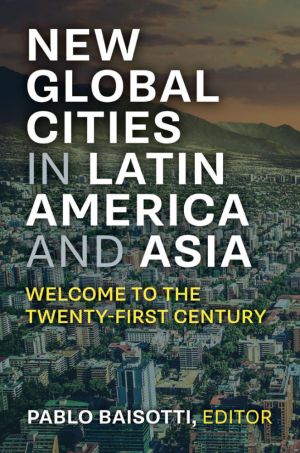Cyborgs in Latin America
by J. Andrew Brown
DescriptionTable of ContentsDetailsHashtagsReport an issue 






Book Description
Cyborgs in Latin America explores the ways cultural expression in Latin America has grappled with the changing relationships between technology and human identity. The book takes a literary and cultural studies approach in examining narrative, film and advertising campaigns from Argentina, Bolivia, Chile, Mexico and Uruguay by such artists as Ricardo Piglia, Edmundo Paz Soldán, Carmen Boullosa and Alberto Fuguet among others. Using and criticizing theoretical models developed by Katherine Hayles, Donna Haraway, Gilles Deleuze and Michel Foucault, the book will appeal to specialists and students of Latin American Studies; Posthuman Theory; and Literature, Science and Technology Studies.This open book is licensed under a Creative Commons License (CC BY). You can download Cyborgs in Latin America ebook for free in PDF format (1.2 MB).
Table of Contents
Introduction
Chapter 1
Posthuman Porteños: Cyborg Survivors in Argentine Narrative and Film
Chapter 2
Missing Gender: The Posthuman Feminine in Alicia Borinsky, Carmen Boullosa, and Eugenia Prado
Chapter 3
Ripped Stitches: Mass Media and Televisual Imaginaries in Rafael Courtoisie’s Narrative
Chapter 4
Neoliberal Prosthetics in Postdictatorial Argentina and Bolivia: Carlos Gamerro and Edmundo Paz Soldán
Chapter 5
Video Heads and Rewound Bodies: Cyborg Memories in Rodrigo Fresán and Alberto Fuguet
Conclusion
Book Details
Title
Cyborgs in Latin America
Subject
Literature
Publisher
Palgrave Macmillan
Published
2010
Pages
212
Edition
1
Language
English
ISBN13
9781349288359
ISBN10
1349288357
ISBN13 Digital
9780230109773
ISBN10 Digital
0230109772
PDF Size
1.2 MB
License

Related Books

The multiple purposes of nature - livelihood for communities, revenues for states, commodities for companies, and biodiversity for conservationists - have turned environmental governance in Latin America into a highly contested arena. In such a resource-rich region, unequal power relations, conflicting priorities, and trade-offs among multiple goal...

This book outlines development theory and practice overtime as well as critically interrogates the "cultural turn" in development policy in Latin American indigenous communities, specifically, in Guatemala, Honduras, Ecuador, and Bolivia. It becomes apparent that culturally sustainable development is both a new and old idea, which is simu...

New Global Cities in Latin America and Asia: Welcome to the Twenty-First Century proposes new visions of global cities and regions historically considered "secondary" in the international context. The arguments are not only based on material progress made by these metropolises, but also on the growing social difficulties experienced (e.g....

This open access report presents findings from the five Latin American countries that participated in the second cycle of the IEA International Civic and Citizenship Education Study (ICCS 2016). ICCS 2016 investigated the ways in which a range of countries are preparing their young people to undertake their roles as citizens during the second decad...

This volume uses the study of firm dynamics to investigate the factors preventing faster productivity growth in Latin America and the Caribbean, pushing past the limits of traditional macroeconomic analyses. Each chapter is dedicated to an examination of a different factor affecting firm productivity - innovation, ICT usage, on-the-job-training, fi...

This edited volume examines how economic processes have worked upon social lives and social realities in Latin America during the past decades. Through tracing the effects of the neoliberal epoch into the era of the so-called pink tide, the book seeks to understand to what extent the turn to the left at the start of the millennium managed to challe...

